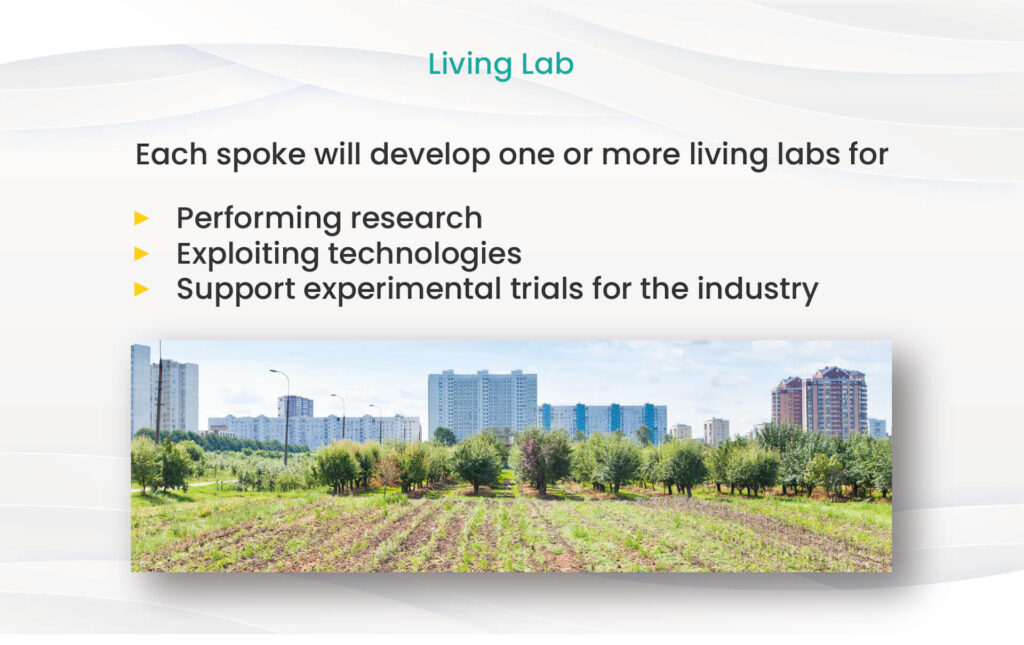Spokes
9 Spokes across the 5 strategic objectives
An analysis of the current state-of-the-art of Italian research in agriculture clearly indicates a consolidated track record of activities aiming to enhance crop yield, quality and sustainability of production strategies, as can be easily inferred by the publications produced in the last 6 years (see section A1.3). These are the key- elements on which the Italian scientific community will build upon to face the big challenges outlined in the previous section, through the development of tailored new materials and production strategies meeting at the best the constraints imposed by the unstable climatic conditions, and by the specific ecological and socio- economic requirements of different geographic areas. These are the major gaps to fill, starting from a well- established tradition of scientific research. The use of cutting-edge technologies will be implemented at all levels, to foster the digitalization and de-carbonization of the green transition of agriculture, but always taking into consideration the protection of the typical traits of agri-food products, and the certification of their quality and of the ecological sustainability of the production process. In our vision, the general objectives outlined above can be achieved by allocating Agritech research efforts on 9 different strategic thematic areas, that will be the domains of investigation and exploitation of 9 different spokes:
- Plant, animal and microbial genetic resources and adaptation to climatic changes
- Crop Health: a multidisciplinary system approach to reduce the use of agrochemicals
- Enabling technologies and sustainable strategies for the smart management of agricultural systems and their environmental impact
- Multifunctional and resilient agriculture and forestry systems for the mitigation of climate change risks
- Sustainable productivity and mitigation of environmental impact in livestock systems
- Management models to promote sustainability and resilience of agricultural systems
- Integrated models for the development of marginal areas to promote multifunctional production systems enhancing agroecological and socio-economic sustainability
- New models of circular economy in agriculture through waste valorization and recycling
- New technologies and methodologies for traceability, quality, safety, measurements and certifications to enhance the value and protect the typical traits in agri-food chains







